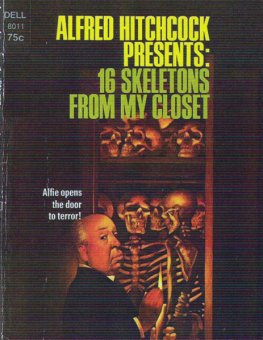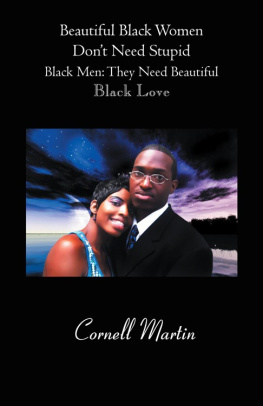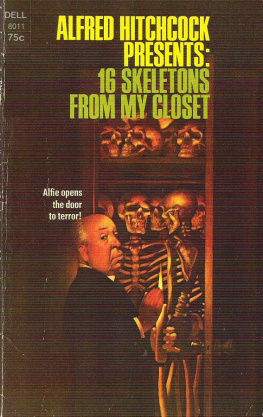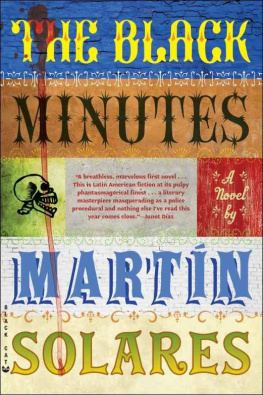This book is a publication of
Indiana University Press
Office of Scholarly Publishing
Herman B Wells Library 350
1320 East 10th Street
Bloomington, Indiana 47405 USA
iupress.org
2021 by Alfred L. Martin, Jr.
All rights reserved
No part of this book may be reproduced or utilized in any form or by any means, electronic or mechanical, including photocopying and recording, or by any information storage and retrieval system, without permission in writing from the publisher. The paper used in this publication meets the minimum requirements of the American National Standard for Information SciencesPermanence of Paper for Printed Library Materials, ANSI Z39.48-1992.
Manufactured in the United States of America
Cataloging information is available from the Library of Congress.
ISBN 978-0-253-05458-6 (hardback)
ISBN 978-0-253-05459-3 (paperback)
ISBN 978-0-253-05460-9 (ebook)
First printing 2021
WRITING THE ACKNOWLEDGEMENTS FOR THIS book is a bit like the final scene in The Wiz (1978, dir. Sidney Lumet), in which Diana Rosss Dorothy is singing Home as images of important people in her life and her journey through Oz flash by. Those who know me know that starting these acknowledgements with a reference to The Wiz is a fitting way to begin.
I have to start by thanking Mary C. Beltrn, who was my dissertation advisor at the University of Texas Austin. Although this project bears only a passing resemblance to the dissertation, Mary did not balk at my wanting to take on a topic that some folks thought was too big for a doctoral project. Marys support started me on the road to what is now The Generic Closet, and for that, I remain incredibly grateful. I also thank the other folks who served on my dissertation committee: Jonathan Gray, Alisa Perren, Eric Pritchard, Janet Staiger, and Karin Wilkins.
So many people talked to me about this book and gave me the opportunity to talk it out while giving a research talk at their institutions. Gabriel Dor is truly the midwife for this book baby. Gabriel was kind and generous and provided an ear whenever I needed it. And more than that, Gabriel read drafts of chapters as I was revising and offered critical feedback that helped make the book better. Noah Tsika read a draft of the full manuscript and asked questions that made me really think through what the heck I was doing and why I was doing it. Racquel Gates (and her adorable family) helped me figure out the introduction while having a lovely brunch at her apartment in New York. Ben Aslinger invited me to deliver a presentation at Bentley University early in the process of writing this book, and that talk set the wheels in motion to rethink its overarching goals. Mia Fischer, my old University of Colorado Denver office neighbor, helped me think more sharply about the book and was the best starting-the-tenure-clock buddy I ever could have asked for. These wonderful humans have my eternal gratitude.
Equally critical to this process were folks who simply provided support through laughter and being a supportive ear. Kristen Warner, my academic big sister, has been such a gift since I first met her in 2011, and I continue to be awed by her brilliance. Mike Rennett, Taylor Cole Miller, Nora Patterson, and Andy Owens (a.k.a. Nora and the Homosexuals, managed by our Svengali Mike) are grad school friends who have been the most amazing cheerleaders an academic could ask for. My cohort homie Keara Goin remains someone I can always talk to when I need to figure out an academic problem. Her clearheadedness came in handy as I was trying to see the forest through the trees while writing. The work of Kathy Battles, Jerry Butters, Herman Gray, Jonathan Gray, Bambi Haggins, Lisa Henderson, Robin Means Coleman, and Beretta Smith-Shomade has been integral to my scholarly and intellectual growth, and they are folks who Ive felt have always had my best interests at heart and made me feel that my work mattered. I also thank my University of Iowa colleagues Joy Hayes and Kate Magsamen-Conrad for helping me to navigate finishing the book.
Several senior scholars championed my work early on and encouraged me that I was onto something. Janet Staiger was an early cheerleader whose questions stuck with me long after she asked them. (Janet, you were rightthe Moesha episode is about gossip.) Jonathan Gray listened to me, a(n overly chatty) grad student, drone on about my very important work and yet still mentored me. Herman Gray was extraordinarily generous with his time and mentorship, even as I fanboyed to be in his presence. And Janice Frisch, formerly an acquisitions editor at Indiana University Press, believed in this project and its potential from the start. I am grateful for that vote of confidence.
My family has been an enormous source of support and inspiration. First and foremost, my love, my husband, Tom, was a master at both pushing me to finish when I needed it and backing off and taking me out for dinner or a movie or on a trip so I could decompress. Tom is a partner in every sense of the word and has been for more than twenty years. My sisters, Annette, Lejoan, Trena, and Yolanda, provided enormous emotional support. My dearly departed mother-in-law, Janice, supported me in ways any mother would and insisted that I always call her Mama. My best friends in the universe (and my surrogate family), the Potluck Crew, Erica Lott, Cory Lott, Ayanna McConnell, Rhea Norwood, and Roy Rogers; my Interlochen crew, Heather Dominey, Libby Harris, Janelle Hinkley, Stephanie Holloway, Kevin Hyatt, Jessica Peterson, and Julie Smith; my Chicago homies, Camille DeBose, Joe Graham, Krystal Villanosa, and Drew Williams; and my former dancer besties, Pat Gold and Elizabeth Zubayour support has really gotten me through writing this book, and your love means more to me than you will ever know. Dee Blackmon and Omari Gardner kept me in stitches with their unique brand of foolishness, proving that laughter really is the best medicine for a frazzled media scholar trying to finish a book. Angelica Lindsey-Ali, Kenneth Williams, and T. Tara Turk-Haynes gave me new music that provided the soundtrack as I wrote, and for that, I am eternally grateful. My aca-homies, Andre Cavalcante, Scott Poulson Bryant, Matt Sienkiewicz, and Anjali Vats, offered supportthrough laughter and otherwiseas I worked through drafting this book. A special thanks to Pat Gold, who provided her talents as a retired high school English teacher to make sure my grammar was as good as it should be. Last, but certainly not least, my dearly departed father showed me what it meant to be a person who loves fiercely, takes no prisoners, and cusses like a sailor. I miss him every day and am grateful for all the love he showed me and showered on me.
This bookfor real realcould not have happened without the interviews I conducted in for generously engaging with the series in this book and talking to me so I could write a chapter on media reception.
I am indebted to Ron Becker, Steven Capsuto, and Stephen Tropiano. Their willingness to provide me with copies of television series that I would have been unable to view otherwise helped me make this project stronger, both in my analysis and my methodology.





![Heidegger Martin - Ponderings. [1]: Black notebooks: Ponderings II-VI: black notebooks 1931-1938](/uploads/posts/book/212464/thumbs/heidegger-martin-ponderings-1-black.jpg)




